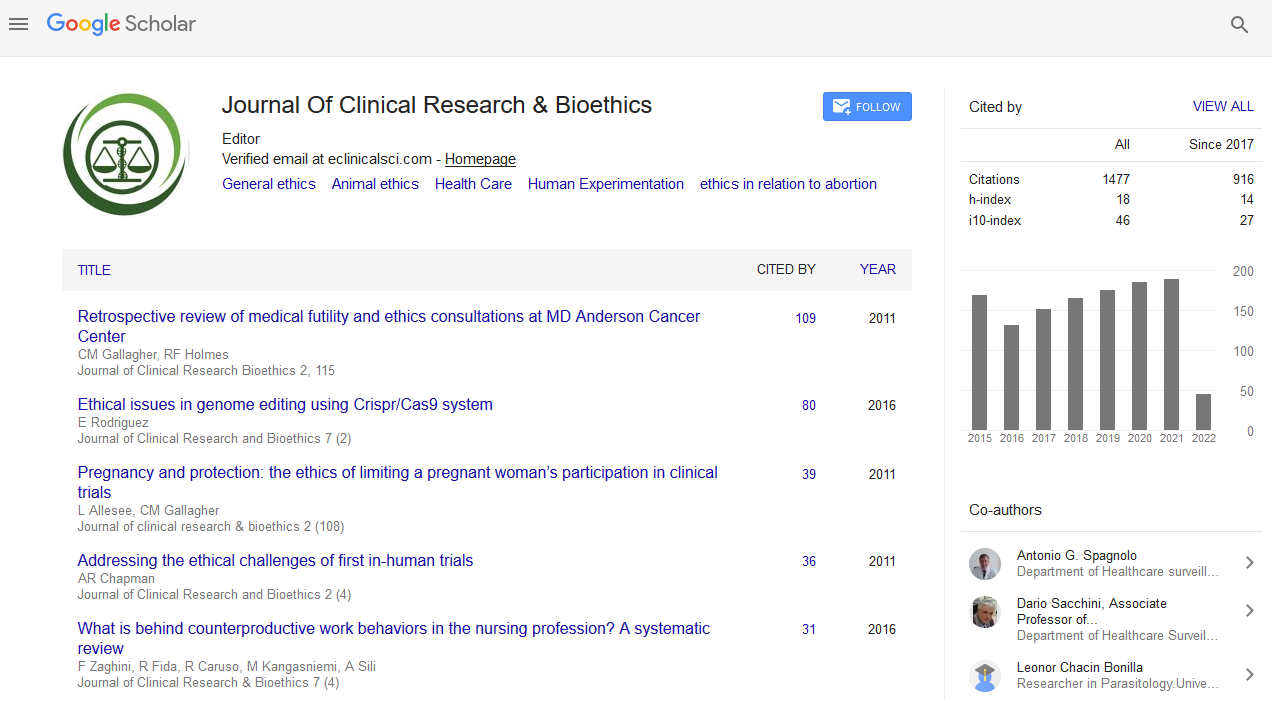PMC/PubMed Indexed Articles
Indexed In
- Open J Gate
- Genamics JournalSeek
- JournalTOCs
- RefSeek
- Hamdard University
- EBSCO A-Z
- OCLC- WorldCat
- Publons
- Geneva Foundation for Medical Education and Research
- Google Scholar
Useful Links
Share This Page
Journal Flyer

Open Access Journals
- Agri and Aquaculture
- Biochemistry
- Bioinformatics & Systems Biology
- Business & Management
- Chemistry
- Clinical Sciences
- Engineering
- Food & Nutrition
- General Science
- Genetics & Molecular Biology
- Immunology & Microbiology
- Medical Sciences
- Neuroscience & Psychology
- Nursing & Health Care
- Pharmaceutical Sciences
Abstract
Questions Posed by the Use of Genetic Information for Personalized Medicine Achievements and Promises
George N Goulielmos, Maria I Zervou, Agata Burska and Frederique Ponchel
Personalised medicine (PM) has the potential to increase therapeutic effectiveness, reduce side effects and lower cost. The identification of biomarkers predictive of the clinical response to specific treatments in subsets of patients became reality for a variety of diseases. However, a better understanding of the benefits and limitations needs to be developed at the level of the general public as well as at the level of an individual patient. The upcoming ability to characterize each patient from the genetic point of view in a comprehensive manner is believed to have the potential to transform medicine, thus enabling accurate prognosis as well as a treatment outcome prediction. However, PM holds both promise and cause for concern. Although PM promises that an individual’s genetic information may be increasingly used to prioritize medical decision making, it raises in parallel fears and questions as to whether such use could be inequitable. Thus, there are many thoughts whether the use of individual genetic information in the delivery of health care can be a cause for concern, as it may lead to genetic discrimination and other problems such as with employers and private insurance companies. Finally, the main pitfall of predictive tests for complex disease remains the putative lack of proven medical benefit. A better understanding of the benefits PM will have to be developed at the level of the general public as well as at the level of an individual patient; which will also reassure people that their genetic data is used appropriately to choose therapeutic protocols and drugs.


